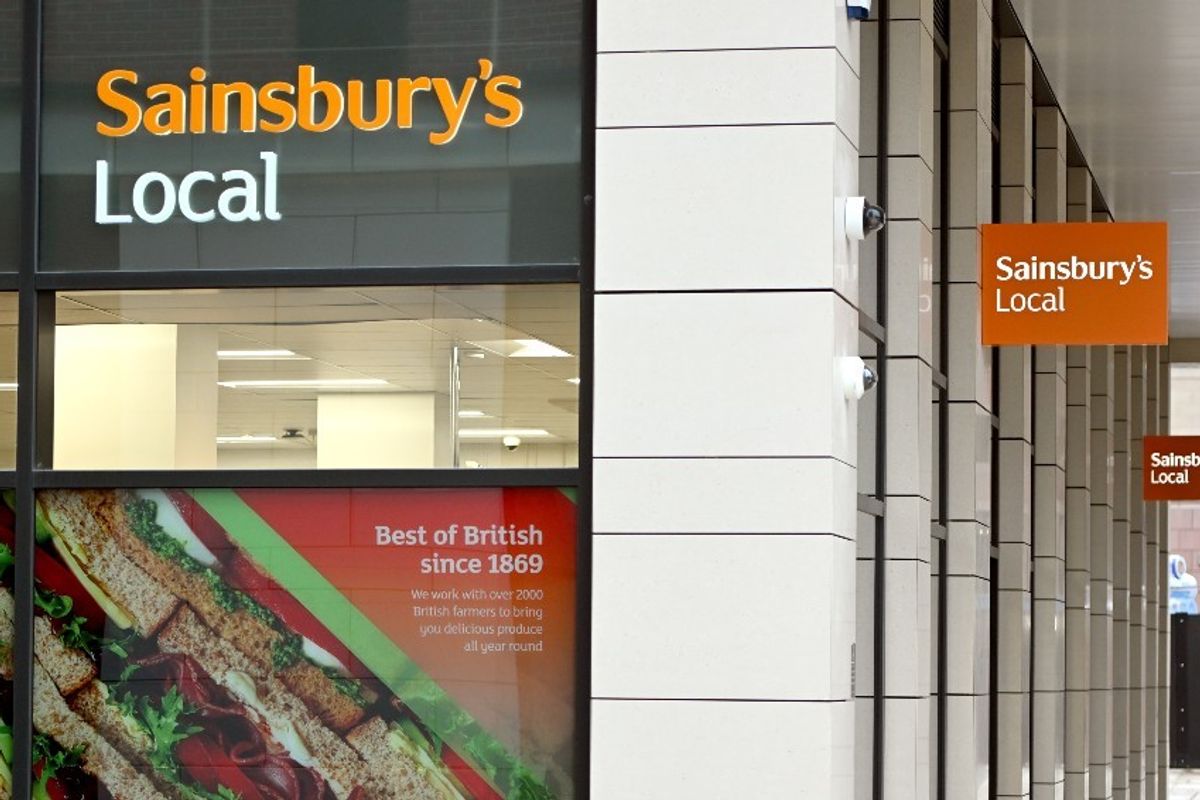Supermarket Sainsbury’s raised its full-year profit forecast today (2) after reporting slightly better-than-expected figures for the first half, boosted by volume gains on its competitors as Sainsbury’s convenience Local format also performed well.
Over the 28 weeks to Sept 16, the group’s underlying pre-tax profit came in at £340 million. This was unchanged on the same period last year but ahead of analysts’ forecasts of £335m. Sainsbury’s now expects its annual profits to be between £670m-£700m, compared with a previous guidance of £640-£700m.
Group like-for-like sales, which include the Sainsbury’s and Argos chains, rose 8.5 per cent. However, growth slowed during the six months, with second-quarter sales up 6.8% compared to a rise of 9.8 per cent in the first quarter as price rises eased.
The company still doesn’t break down like-for-like sales by division, but its total first-half grocery sales rose 10.1 per cent. This was driven by volume growth, which means its revenues were not only flattered by the effects of grocery inflation.
Sainsbury’s has made market share gains in recent months after rolling out its Nectar Prices scheme to over 6,000 products to improve its competitiveness against both its traditional rivals and the discounters.
However, general merchandise sales were up a more muted 1.1 per cent, reflecting the weaker consumer demand for non-essentials, unhelpful weather and the closure of Argos stores in Ireland. Meanwhile, clothing sales slid 8.4% after a cooler summer and warm early autumn reduced demand for seasonal items.
Sainsbury’s stated today that it was well placed for the key Christmas season. “Strong trading momentum has continued in recent weeks, and we are confident heading into the peak trading period,” it said.
Meanwhile, CEO Simon Roberts hailed that “food is firmly back at the heart of Sainsbury’s”, highlighting that its focus on value, innovation and service was resonating with consumers.
Roberts claimed that the chain had raised prices by half the rate of inflation and was cutting prices in areas where costs were coming down – mainly in fresh food.
He added, “We know people are still finding things tough and we’re working harder than ever to reduce our costs, putting the money back into our customers’ pockets through lower prices on the products they buy most often.
“I’m pleased to say food inflation is coming down, and we are passing savings on to customers.”
Joe Dawson, Retail Analyst at GlobalData, a leading data and analytics company, stated that Sainsbury’s positive H1 results have shown a resilience in the face of discounter competitors and effectiveness in adapting to new consumer behaviours and trends.
“Food & grocery was indeed the star of the show in Sainsbury’s H1, as its Food First strategy paid off.
"Sainsbury’s convenience Local format also performed well, with sales growing 10.5% following nine store openings and improvements to its Food to Go offer. Sainsbury’s drove volumes by inflating at a slower rate than competitors having invested £118m in price cuts and rolling out its Nectar Prices loyalty scheme to offer discounts on over 6,000 products. Sales through supermarkets increased 10.8 per cent, reflecting an increase in consumers doing their full weekly shop at Sainsbury’s as targeted price reductions on staple products improve value perceptions, particularly for its core family-centric customer base," Dawson said.


